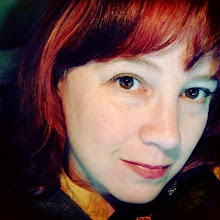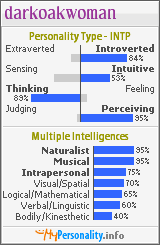I Taught Them All
I have taught high school for 10 years. During that time, I have given assignments, among others, to a murderer, an evangelist, a pugilist, a thief, and an imbecile.
The murderer was a quiet little boy who sat on the front seat and regarded me with pale blue eyes; the evangelist, easily the most popular boy in school, had the lead in the junior play; the pugilist lounged by the window and let loose at intervals a raucous laugh that startled even the geraniums; the thief was a gay-hearted Lothario with a song on his lips; and the imbecile, a soft-eyed little animal seeking the shadows.
The murderer awaits death in the state penitentiary; the evangelist has lain a year now in the village churchyard; the pugilist lost an eye in a brawl in Hong Kong; the thief, by standing on tiptoe, can see the windows of my room from the county jail; and the once gentle-eyed little moron beats his head against a padded wall in the state asylum.
All of these pupils once sat in my room, sat and looked at me gravely across worn brown desks. I must have been a great help to those pupils--I taught them the rhyming scheme of the Elizabethan sonnet and how to diagram a complex sentence.~Naomi White 1937
Today's blog could also be called Polar Opposite because of the differences in how my children are educated and the way my husband and I were. My 20-year reunion was last summer. I was able to attend one event, really that was enough. I learned that some of my classmates are doctors, some have been in jail. Some have been married many times, some have lost children. Finding this quote from a teacher made me wonder how many of them are still influenced by what happened to them in school, what they really think about their school experience. Spring Hill School was not my favorite place, in fact I hated it most of the time. The classes were boring and pointless, the kids were cliquish and mean, and the politics were disgusting.
Even though I was one of the "smartest" in my class(one of those who made 99th percentile scores on all those silly standardized tests), I was unwilling to jump through the political hoops to be a part of that elite group of "Who's Who", it was all so fake and meaningless to me. My goal in high school was to NEVER, EVER, take a book home from school, unless it was something I wanted to read(like my biology or literature books), and by-God I didn't!!
Merely to stuff the child with a lot of information, making him pass examinations, is the most unintelligent form of education. – Jiddu Krishnamurti
We Are Unschoolers
The term evokes such a negative connotation, something we are *not* doing rather than what we *are* doing. Mark and I have come to understand, through our own life experiences, that learning is a natural process that begins at birth and lasts a lifetime. Our kids gain understanding through real-life situations, educational videos, television shows, hands-on projects, music, the internet, and books of course. Whatever interests they pursue are decidedly not labeled as "subjects". Because we aren't under the constraints of a government education we can enjoy a rich and varied learning experience rather than race through subjects that must be "learned"(memorized) for a state test. A public school(or private) setting doesn't allow for natural abilities or interests; everyone must remain on the same page at the same time. Unschooling allows the kids the time and freedom to study what interests them and allows me, as a facilitator, to make learning the basics as painless as possible.

Not many people "get" unschooling. Some are downright hostile to the idea, even those who embrace homeschooling. Here is my response to a friend's questions about unschooling:
Patsy wrote: "I know you believe in "unschooling" and I'm just curious...do you have a set curriculum? How do you know that your children are learning everything they need to know? Do you have assessment tests periodically? I mean sometimes even in life situations we don't learn everything we need to know...in my opinion. I'd be worried that my kids weren't getting it all and then when taking the SAT to get into college they'd do horrible."
"No, we don't use a set(I am assuming you mean traditional) curriculum. We have over 2,000 books at our disposal, plus the library if we can't find what we want here. Our books include college textbooks, other adult-level books, McGraw-Hill(and other) workbooks, Childcraft and Worldbook Encyclopedia, National Geographic(Smithsonian, Newsweek, Cat Fancy, and other) mags, story books, fact books, phonics-based readers, sight-word based readers, dictionaries, thesaurus, Eyewitness, Usborne, DK, and on and on and on.... I have six bookshelves that are bulging at the seams!! We also have access to the Internet so we look up things that interest us on a daily basis, and music, cable tv for educational shows, videos and so forth.
I know what they know because they are with me 24/7 or very nearly! My kids don't leave at 7am and come home at 4pm just to spend another 1-3 hours on homework. I am with them, *actively* with them actually, and I am able to facilitate or help with whatever problem/topic/question comes up. We spend lots of time discussing topics they bring up and some that I introduce.
Is it really necessary for ALL first graders to learn the parts of a flower? What if my child had an obsession with space exploration or reptiles at that age and I skipped teaching parts of a flower that year? They'd fail it on the test but would it mean they aren't capable of learning? What if they never learn the parts of a flower? Can you recall them? I know I have to think pretty hard about it and am probably missing some of them. People also have natural leanings, mine happens to be more toward creativity and understanding people than mathematics. Homeschooling allows for diversity in learning styles and developing strengths rather than the hurry up and "learn it for the test" thing that happens in PSS.
As far as tests go, I don't believe in standardized testing for homeschoolers unless there is a need for the parent or child to know exactly where they are grade-wise. Standardized tests usually follow a state mandated curriculum or course of study so for a homeschooler to take it seems pointless. I know at least a dozen un/homeschooled young teens going to colleges without having taken a GED or SAT in various parts of the country, some as young as 14 years of age. Colleges are more and more accepting of homeschoolers and most homeschoolers are scoring way up there on their SATs anyway.
So here we sit, on the edge of the circle, exactly across from the schooling experience of our youth. It is a wonderful place to be!








